This page gives a brief overview of some ongoing and previous projects related to autonomous ships.
Ongoing projects
Ocean Space Centre
Ocean Space Centre – a knowledge centre for future ocean space technology.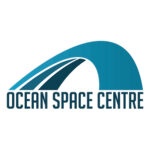 Norway’s future competitiveness will depend on our ability to participate in knowledge and technology development at international level, which in turn requires us to be capable of assuming a leading global position in research in certain areas. In autumn 2011, MARINTEK completed and submitted a concept study for a future research centre on ocean space technology to the Ministry of Trade and Industry.
Norway’s future competitiveness will depend on our ability to participate in knowledge and technology development at international level, which in turn requires us to be capable of assuming a leading global position in research in certain areas. In autumn 2011, MARINTEK completed and submitted a concept study for a future research centre on ocean space technology to the Ministry of Trade and Industry.
SFI Autoship (Norwegian)
SFI Autoship is a 8-years research-based innovation centre that will contribute to Norwegian players taking a leading role in the development of autonomous ships for safe and sustainable operations. The focus areas include:
- Enabling technologies like situational awareness, artificial intelligence, autonomous control and digital infrastructure.
- New business models and operational concepts like the adaptation of shore control centers and development cost-effective solutions for logistics and port solutions.
- Methods and models for monitoring risk and the clarification of the legal aspects of liability when a captain is not on board.
Previous projects
AEGIS (EU)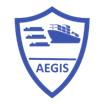
The AEGIS project has been selected by the EU Commission to show that autonomous ships and automation in ports can make waterborne transport much more flexible and user oriented, while continuing to reduce the societal and environmental impact of EU transport.
Project period:2020-2023
Orcas
This project will develop novel technological solutions for online risk management and risk control of autonomous ships. Cutting-edge interdisciplinary research combining cybernetics and risk management aims to achieve high level of autonomy, intelligence and decision-making capabilities for autonomous ships. The goal is to enhance the realization of autonomous ships by developing safer and smarter automatic sailing systems and power and propulsion systems that are able to detect, perceive, verify, monitor, control and follow-up deviations and potential hazards.
Project period: 2018-2023
Autoferry
The concept of small autonomous passenger ferries in urban areas is a more flexible and environmentally-friendly alternative to bridges or manned ferries. Autoferry therefore aims to develop groundbreaking new concepts and methods which will enable the development of such ferries for urban water transport.
Autoferry is one of the nine NTNU Digital Transformation projects.
ARTISAN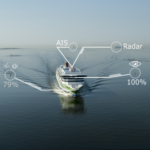
Maritime transport is currently facing new challenges such as significant increases in transport volumes, more stringent environmental requirements and a shortage of seafarers in the future. One of the many new concepts having the potential to overcome these challenges is autonomous ship navigation. In particular, the concept is expected to allow for more efficient and competitive ship operations while reducing the vessels’ environmental impact.
Autosit
Autonomous surface vehicles (ASV’s) must be in possession of situational awareness in order to interact safely with other vessels, whether manned or unmanned. Building on cutting edge research in sensor fusion and collision avoidance, the Autosit project will deliver algorithms for situational awareness that enable ASV’s to guess and predict the intentions of other vessels.
Autoship (EU)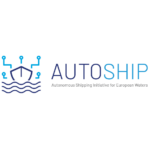
AUTOSHIP – Autonomous Shipping Initiative for European Waters – aims at speeding-up the transition towards a next generation of autonomous ships in EU.
Project period: 2019-2023
Integrated Maritime Autonomous Transport Systems (IMAT)
The IMAT project will develop and test land-based sensors, communication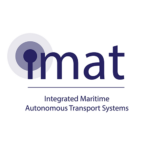 systems and control systems used as a support to autonomous vessels navigation and operation. The technological infrastructure will be able to provide the transportation systems with increased sensor redundancy and will be an integrated part of the shore-based control centres, which shall ensure safe and efficient operation. A reliable infrastructure is crucial for a safe implementation of maritime autonomous transport systems.
systems and control systems used as a support to autonomous vessels navigation and operation. The technological infrastructure will be able to provide the transportation systems with increased sensor redundancy and will be an integrated part of the shore-based control centres, which shall ensure safe and efficient operation. A reliable infrastructure is crucial for a safe implementation of maritime autonomous transport systems.
The main objective of the IMAT project is to define, develop, adapt and test the land-based sensor infrastructure.
NAVISP
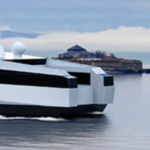 Autonomous shipping is crucial in future transport of goods and people. Trondheimsfjorden Test Area for Autonomous Ships was established in 2016 as the world’s first test area for autonomous ships, to enable the transformation from traditional to autonomous shipping. This project will develop infrastructure and methods for testing and verification of technologies and concepts. This will ensure verification of high level of security, safety and operability, and to build trustworthiness to autonomous shipping. Autonomous shipping is enabled by several technologies like communication infrastructure, positioning technologies, advanced sensors, machine-learning, artificial intelligence and improved connectivity (Internet of Things).
Autonomous shipping is crucial in future transport of goods and people. Trondheimsfjorden Test Area for Autonomous Ships was established in 2016 as the world’s first test area for autonomous ships, to enable the transformation from traditional to autonomous shipping. This project will develop infrastructure and methods for testing and verification of technologies and concepts. This will ensure verification of high level of security, safety and operability, and to build trustworthiness to autonomous shipping. Autonomous shipping is enabled by several technologies like communication infrastructure, positioning technologies, advanced sensors, machine-learning, artificial intelligence and improved connectivity (Internet of Things).
Munin
The project MUNIN – Maritime Unmanned Navigation through Intelligence in Networks – is a collaborative research project, co-funded by the European Commissions under its Seventh Framework Programme. MUNIN aims to develop and verify a concept for an autonomous ship, which is defined as a vessel primarily guided by automated on-board decision systems but controlled by a remote operator in a shore side control station.
ASTAT
Short sea transport is struggling in Norway and in Europe. This in spite of a generally energy efficient and low greenhouse-gas emission performance. An ageing fleet and strong competition from trucks makes it difficult to develop new and even better transport concepts. Unmanned ships that are able to operate autonomously may change this situation and the ASTAT project will investigate one particular new type of unmanned ships: A small and fully electric shuttle type vessel. The ASTAT project had its kick-off at May 16th 2017.
Autosea
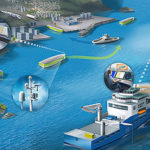 The AUTOSEA project intends to focus on automated situation awareness using sensor fusion to reduce the risk of collisions between ships and vehicles when an increased level of autonomy is introduced. To improve detection capabilities also on small objects and better cover the close-range sector, the AUTOSEA project will, in addition to conventional maritime radar, include sensor types not normally used for such purposes in the maritime sector, like camera, infrared and LIDAR.
The AUTOSEA project intends to focus on automated situation awareness using sensor fusion to reduce the risk of collisions between ships and vehicles when an increased level of autonomy is introduced. To improve detection capabilities also on small objects and better cover the close-range sector, the AUTOSEA project will, in addition to conventional maritime radar, include sensor types not normally used for such purposes in the maritime sector, like camera, infrared and LIDAR.
Project period: 2015-2019.
 proximity of other stationary or moving vessels and objects. The Hull to Hull (H2H) project, with the help of the European Global Navigation Satellite System (GNSS), EGNOS and Galileo, will address this need, helping mariners in taking correct navigation decisions, and creating the fundamental condition for autonomous vessels.
proximity of other stationary or moving vessels and objects. The Hull to Hull (H2H) project, with the help of the European Global Navigation Satellite System (GNSS), EGNOS and Galileo, will address this need, helping mariners in taking correct navigation decisions, and creating the fundamental condition for autonomous vessels.